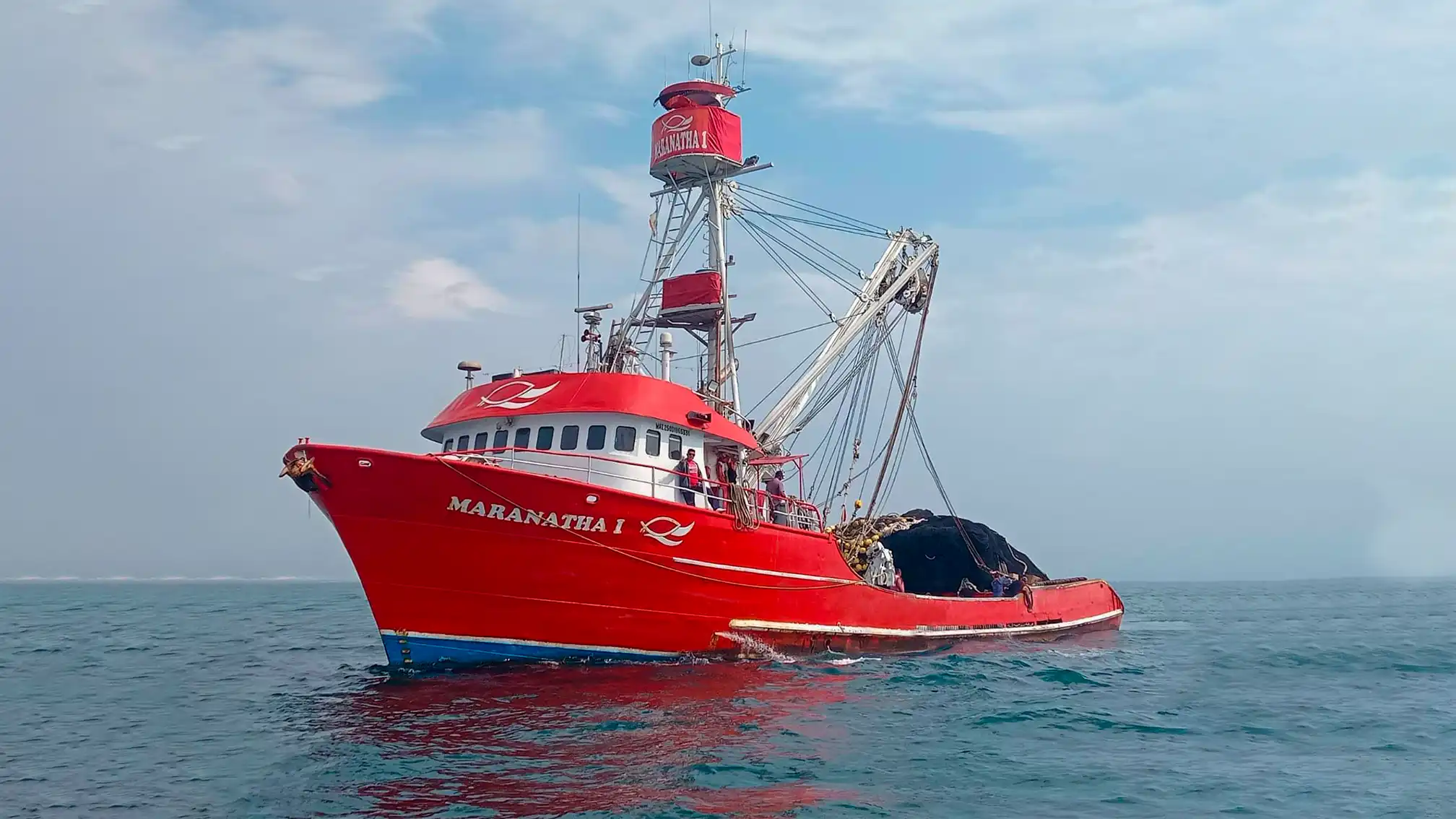AENE Foods: Commitment to Sustainable Fisheries and Marine Conservation in Mexico
Aene Foods, a company committed to sustainable and responsible sardine fishing, considers fishmeal production as crucial to the economy and environmental sustainability in Mexico and the world. Mexico is one of the world's leading sardine producers, catching around 750,000 tons in 2022, and is positioned as a leader in this industry.
Sardines, with their high reproduction rate, allow for sustainable fisheries, offering significant nutritional benefits, including omega-3 fatty acids and protein. Fishmeal, with a global production of 5 million tons, is essential for aquaculture and animal feed. Companies like AENE Foods adopt responsible fishing practices, complying with CONAPESCA regulations and respecting closed seasons to protect sardine stocks.
They use advanced traceability and satellite monitoring systems to guarantee sustainability and minimize environmental impact. In addition, their non-intrusive practices ensure that whale routes and habitats are not affected, contributing to the conservation of these marine mammals and their role in the fertilization of the oceans.
AENE Foods, as a sponsor of the National Whale Museum (MUNBA), demonstrates a strong commitment to social and ecological responsibility, balancing commercial demand with the conservation of marine resources.

Responsible Sardine Fishing and the Fishmeal Industry in Mexico
Responsible sardine fishing is a vital practice for the sustainability of marine ecosystems and the global economy. In Mexico, this activity not only provides income and employment for numerous coastal communities, but also plays a crucial role in the country's food security. Companies like AENE Foods, with their commitment to sustainability and advanced technology, demonstrate that it is possible to balance commercial demand with the conservation of marine resources. By adopting and promoting good practices, we not only protect sardine stocks, but also contribute to the preservation of marine life as a whole, including the majestic whales that inhabit our oceans.
Sardine Fishing Benefits
- Sustainability and Abundance
- Fast Reproduction RateSardines have a high reproduction rate, which allows for their rapid recovery when properly managed. In 2022, world sardine production reached approximately 3.7 million tons.
- Fishery Yields in MexicoMexico caught around 750,000 tons of sardines in 2022, placing it among the world's leading producers.
- Nutritional Value
- Omega-3 Fatty AcidsSardines are rich in omega-3, essential for cardiovascular health. A recent study shows that regular consumption of omega-3 can reduce the risk of heart disease by 20%.
- Proteins and NutrientsA 100-gram serving of sardines contains approximately 25 grams of high-quality protein, as well as essential vitamins and minerals such as vitamin D and calcium.
Fishmeal Industry
Fishmeal is a crucial input for a variety of industries, from animal feed to aquaculture and agricultural fertilization.
- High Nutritional Quality
- Nutritional CompositionFishmeal contains between 60-72% of protein, beneficial fats, and a wide range of essential amino acids, making it a balanced feed for aquaculture and livestock.
- Global ProductionIn 2022, about 5 million tons of fishmeal were produced in the world, with Peru and Chile as the main producers.
- Sustainability
- Responsible PracticesAENE Foods: Leading companies in the industry, such as AENE Foods, adopt sustainable fishing practices, respecting the quotas and closed seasons established by the fishing authorities. This ensures the conservation of sardine stocks and the minimization of environmental impact.
- Impact on Aquaculture: Fishmeal is essential for feeding aquaculture species such as salmon and shrimp, which represented a global market of more than US$250 billion in 2022.
Best Practices in the Fishing Industry and their Impact on Marine Conservation
- Regulation and Supervision
- Regulations in MexicoThe National Commission of Aquaculture and Fisheries (CONAPESCA) regulates sardine fishing in Mexico, establishing catch quotas and closed seasons to ensure sustainability. In 2022, these regulations allowed sardine stocks to be maintained at healthy levels, with an exploitation rate of 70% within safe biological limits. AENE Foods rigorously complies with these regulations, adjusting its fishing activities according to closed seasons to ensure that sardines can reproduce and maintain their population at sustainable levels. The company uses advanced monitoring and traceability systems to ensure that all its operations are conducted within established legal and sustainability frameworks, thus contributing to the conservation of marine ecosystems and protecting important species such as whales.
- Technology and Monitoring
- Traceability SystemsAENE Foods uses advanced traceability and satellite monitoring systems to guarantee the quality and sustainability of its products. These systems enable detailed tracking from catch to marketing.
- Marine Life Conservation
- Ecosystem ProtectionResponsible fishing not only protects sardines, but also other marine species and their habitats. Whales, for example, benefit from healthy marine ecosystems, as a balanced sardine population contributes to a healthy marine environment.
- Role of the WhalesWhales play a crucial role in the fertilization of the oceans. Their vertical movements mix nutrients and help the proliferation of phytoplankton, which is essential for the marine food chain and CO2 absorption.


